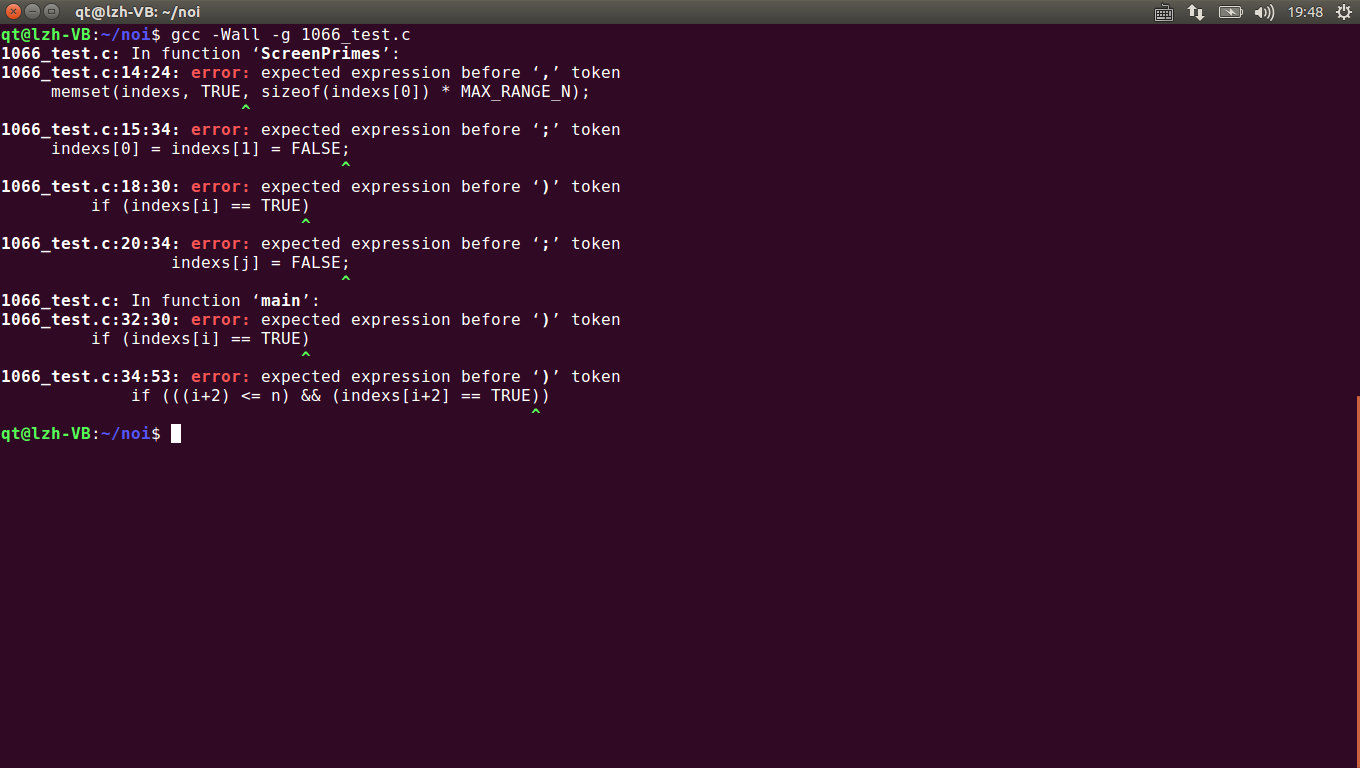一 写在开头
1.1 本文内容
记录一次奇怪的报错和解决过程。
二 事情经过
今天在写代码的过程遇到了一个很有趣的事。下面的代码快速扫一遍很难发现其存在的问题,但我在编译它时却遇到了意外的报错。代码和报错情况如下。
1 #include <stdio.h>
2 #include <string.h>
3
4 #define FALSE
5 #define TRUE
6 #define MAX_RANGE_N 10005
7
8 static char indexs[MAX_RANGE_N];
9
10 void ScreenPrimes(char *indexs)
11 {
12 int i, j;
13
14 memset(indexs, TRUE, sizeof(indexs[0]) * MAX_RANGE_N);
15 indexs[0] = indexs[1] = FALSE;
16
17 for (i = 2; i < MAX_RANGE_N; i++)
18 if (indexs[i] == TRUE)
19 for (j = i + i; j < MAX_RANGE_N; j += i)
20 indexs[j] = FALSE;
21 }
22
23 int main(int argc, char *argv[])
24 {
25 freopen("in.txt", "r", stdin);
26 int i, n, counter = 0;
27
28 ScreenPrimes(indexs);
29 scanf("%d", &n);
30 for (i = 0; i <= n; i++)
31 {
32 if (indexs[i] == TRUE)
33 {
34 if (((i+2) <= n) && (indexs[i+2] == TRUE))
35 {
36 printf("%d %d
", i, i+2);
37 counter++;
38 }
39 }
40 else
41 {
42 continue;
43 }
44 }
45 if (counter == 0)
46 printf("empty
");
47
48 fclose(stdin);
49 return 0;
50 }

看到没,当时查错的时候硬是完整仔细得看了一遍代码,才发现,报错的原因竟然是宏定义不完整!代码在定义TRUE和FALSE两个宏时后面竟然没写数值!将这两个宏定义改写成如下形式,问题解决!
1 #define FALSE (-1)
2 #define TRUE 0